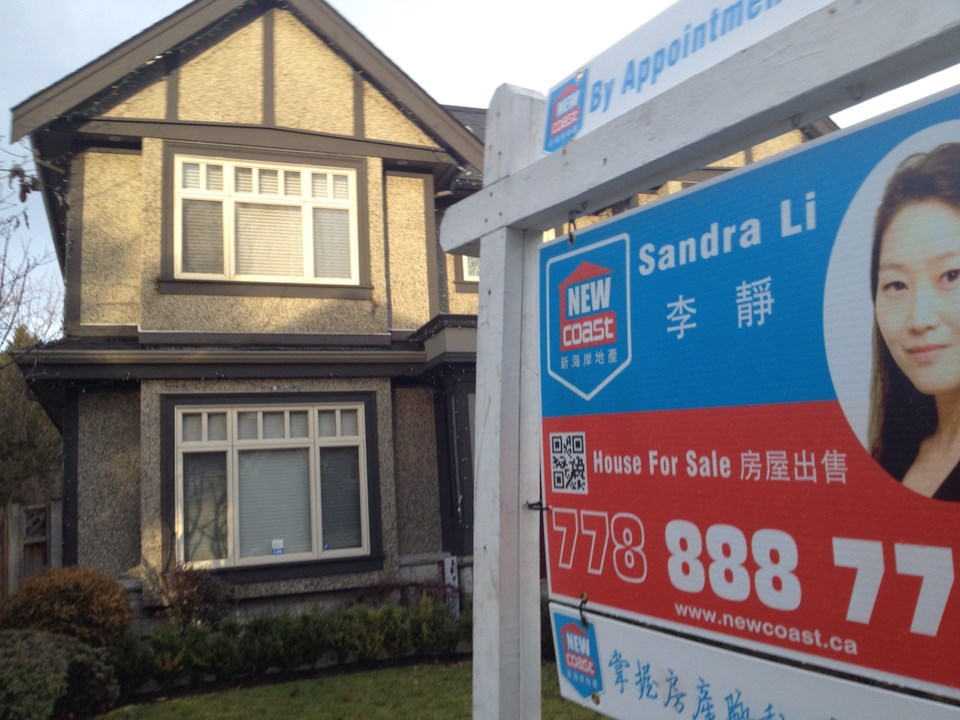Support for tough new legislation that would effectively outlaw foreigners from purchasing real estate in British Columbia is endorsed by sizable majorities across all demographics in the province, regardles of political affliation, a new Glacier Media survey has found.
Last month, Research Co. and Glacier Media looked at the state of affairs in British Columbia’s political scene. For more than five years, concerns about housing, homelessness and poverty dominated the issue landscape, with residents aged 18 to 34 and Metro Vancouverites being significantly more worried than their non-urban and older counterparts.
The COVID-19 pandemic has affected the way we look at the challenges facing the province. British Columbians aged 55 and over are responsible for pushing health care to the top of the list of provincial concerns, while those aged 35 to 54 became increasingly troubled by economic matters.
For those aged 18 to 34 and Metro Vancouverites, however, housing affordability remains the one issue that requires attention.
In December 2019, most British Columbians endorsed the performance of the provincial government on housing. At the time, more than 70 per cent of the province’s residents expressed some agreement with the fiscal policies designed and implemented by the BC New Democratic Party (NDP) administration, and 49 per cent expected them to be “effective” in making housing more affordable.
Six months later, views on the taxes have not shifted drastically. Practically four in five British Columbians agree with the provincial government’s decision to increase the foreign buyer’s tax (79 per cent) and expand it to areas located outside of Metro Vancouver (also 79 per cent).
The introduction of a “speculation tax” in specific urban areas targeting foreign and domestic homeowners who pay little or no income tax in British Columbia, and those who own second properties that are not long-term rentals, is currently endorsed by 77 per cent of residents.
Public support is also high for the introduction of a tax of 0.2 per cent on the value of homes between $3 million and $4 million, and a tax rate of 0.4 per cent on the portion of a home’s value that exceeds $4 million (76 per cent) and an increase in the property transfer tax from 3 per cent to 5 per cent for homes valued at more than $3 million (72 per cent). The 5 per cent portion only applies to the value greater than $3 million.
Across the province, 57 per cent of British Columbians think the actions of the BC NDP government will be effective in making housing more affordable, an eight-point increase since last year.
Among British Columbians who voted for the BC Liberals in the 2017 provincial election, views of the government’s actions improved from 49 per cent in December 2019 to 67 per cent this month. These are remarkable numbers for one of the key policy planks that the opposition party focused on after the government transition, particularly in the Vancouver riding that is represented by BC Liberal leader Andrew Wilkinson. The proportion of British Columbians who are disappointed with how this issue has been handled has become smaller over time.
In spite of these figures, there are some fears that have been brought up by the COVID-19 pandemic. If real estate prices come down severely in British Columbia, the market may become too attractive for foreign buyers who will outbid young people trying to upgrade or simply attempting to get into the market.
There are some examples abroad on how to deal with this conundrum. New Zealand passed legislation that bans most foreigners from purchasing real estate in the country.
When British Columbians are asked about implementing a similar regulation across Canada, more than three in four are in favour of following New Zealand’s lead, while only 15 per cent disagree.
Support for a new kind of legislation that would effectively forbid most non-Canadians from purchasing real estate is endorsed by sizable majorities across all demographics. The numbers climb markedly among men (80 per cent), British Columbians aged 35 to 54 (88 per cent ) and residents of Vancouver Island (also 88 per cent ).
While 73 per cent of BC Green voters are in favour of a Canada-wide ban on foreigners owning real estate, the proportion jumps to 81 per cent among BC Liberals and 87 per cent among BC NDP voters.
The level of support for the provincial government’s taxes has been remarkably consistent over the past year. Still, this does not mean that the issue of housing affordability will be settled before the next provincial election rolls around. The provincial government will need to cut some ribbons in the next 16 months to show that its fiscal plans have actually been turned into housing units that local residents can enjoy.
Results are based on an online study conducted from June 13 to June 15, 2020, among 800 adults in British Columbia. The data has been statistically weighted according to Canadian census figures for age, gender and region in British Columbia. The margin of error, which measures sample variability, is plus or minus 3.5 percentage points, 19 times out of 20.



